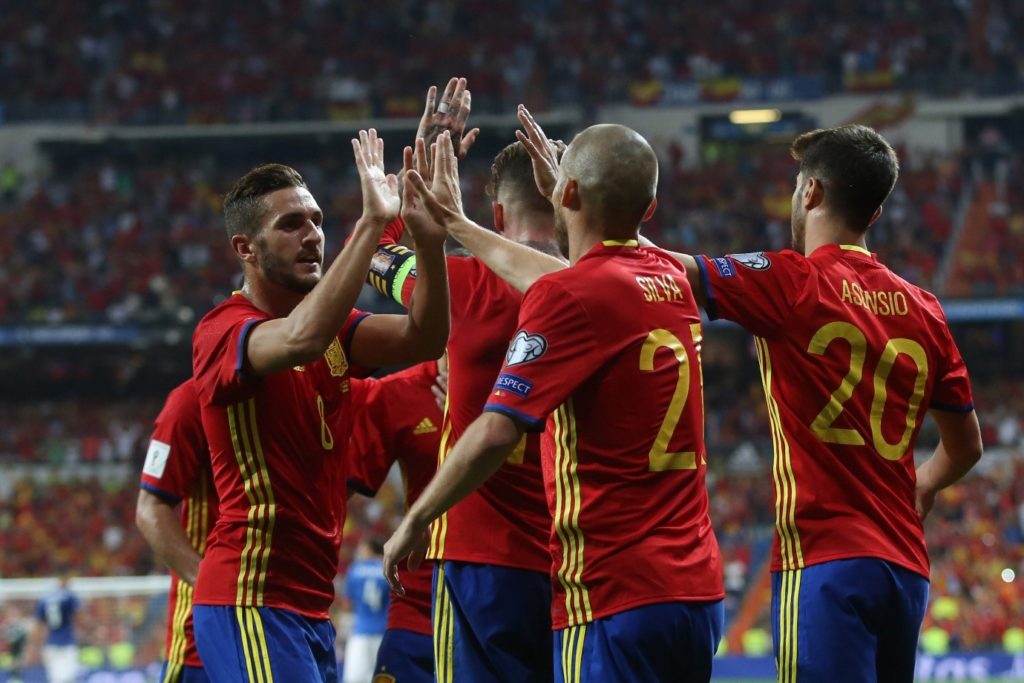
The qualifying stages for Euro 2020 are coming to a close, with the final two rounds of games to be played this month. For six nations, their place in next year’s competition is already guaranteed with matches to spare. One of those countries is Spain, who were the latest to qualify following their last-gasp draw against Sweden in October.
At this early stage, UEFA Euro 2020 odds favour Robert Moreno’s side. But there is one key talking point – the lack of players representing Barcelona and Real Madrid. The times are changing and gone are the days that the big two dominate La Liga with ease. In recent seasons, we’ve seen the likes of Atlético Madrid and Sevilla enter the mix, and at the time of writing there are just three points separating the top seven in the division.
To add some context, when La Roja won the 2010 World Cup, there were seven Barcelona players in the squad and six of them started the final against the Netherlands. In 2013, nine of their domestic squad played in a friendly against Uruguay – which is a record high. Fast-forward to last month and the two Euro 2020 qualifiers against Norway and Sweden featured only one sole survivor: Sergio Busquets. It’s fair to say that La Masia recruits no longer dominate Barça’s first team.
At 31 years old, Spain’s vice-captain Busquets is among the oldest players for both club and country. He is also the last of Barcelona’s ‘Golden Generation’ still standing. While Busquets’ place in the squad next summer is not guaranteed, you have to ask the question, will he follow the likes of Andrés Iniesta into retirement from international duty? With 115 international appearances to his name, he sits seventh in the list of most-capped players. But will he have the opportunity to break into the top five?
Domestic rivals Real Madrid only post two names in the current Spain squad: Sergio Ramos and Dani Carvajal. El Capitán may have missed the Sweden game due to suspension, but continues to add to his appearances, which place him as Spain’s most-capped (168 and counting) player of all-time. Of the 19 goals scored in Spain’s qualifying campaign, Ramos has contributed four of them and is level on goals with striker Rodrigo.
Somewhat more alarming is the diversity of the clubs represented in the current squad – 17 different clubs from five different countries. Eight of those are domestic clubs in La Liga. But even still, you have to question the logistics of getting the team together. Of all the sides in Spain’s top flight, four players represent Villarreal, which is more than any other club – yet they sit eighth in the division. The sands are shifting, but manager Moreno says: “That’s football now.”
“It used to be that you would bring together seven or eight from the same team. Look at those teams that marked an era: Bayern with Germany, Ajax with Holland.”
Spain’s final two matches are against Malta (in Cadiz) and Romania (in Madrid). With qualification now confirmed, it will be interesting to see if Moreno awards some of the younger players their first caps. One potential debutant is centre back Pau Torres, who at the age of 22 is on many European clubs’ radars. It’s clear to see that Spain are in a period of transition and times are changing. Whether Moreno will be successful with his project remains to be seen.